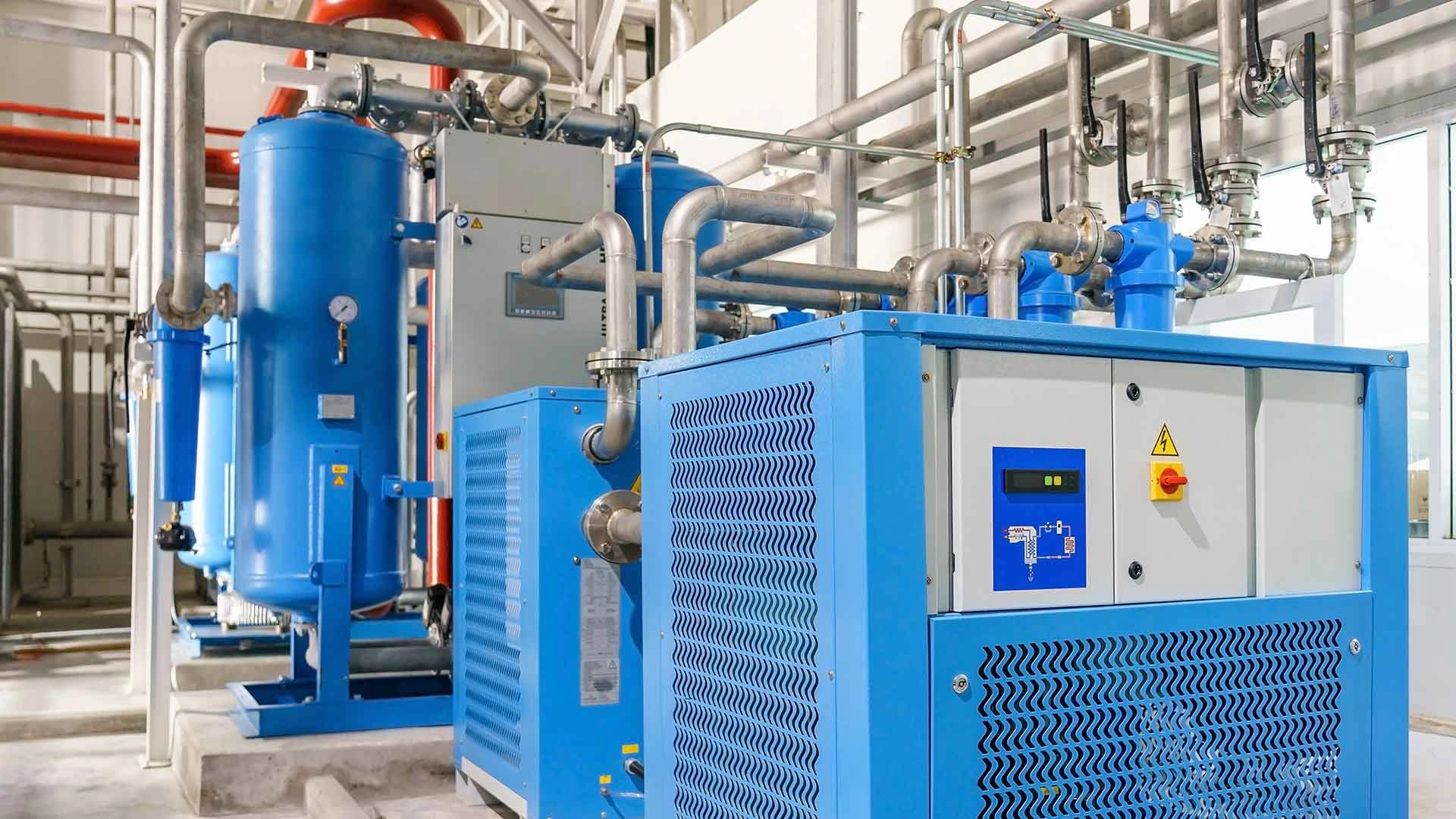How to reduce moisture from Compressed Air
Apr 19, 2025
Compressed air systems are essential for supplying electricity to a variety of industries in Dubai's vibrant and fast-paced industrial scene. Making sure your compressed air is efficient and of high quality is essential for everything from industry to food processing to healthcare. Moisture in compressed air is one of the biggest issues that companies deal with since it may cause a number of issues, such as equipment damage, higher maintenance costs, and lowered product quality. We at Petrotek Dubai know how crucial it is to keep your company's compressed air supply dry and clean. In this article, we'll look at the best methods you can use to maximise your operations and how to successfully lower the moisture in your compressed air system.
Climate Makes Moisture in Compressed Air a Problem
The hot and muggy weather in Dubai creates special difficulties for compressed air system maintenance. Increased moisture content in compressed air due to high humidity levels might result in:
1. Corrosion: Compressors, pipes, valves, and other equipment may rust and corrode as a result of moisture. Your assets' lifespan is shortened, and the cost of replacement and repair rises as a result.
2. Contaminated Products: To keep moisture from contaminating their products, industries including electronics, food manufacturing, and medicines need extremely dry air.
3. Decreased Efficiency: Filters, regulators, and other vital parts may become clogged and damaged due to moisture, which will impair system efficiency.
4. Freezing and Blockages: Excess moisture can freeze and obstruct air lines in colder settings (like refrigerated warehouses), which might interfere with operations.
Methods for Lowering Wetness in Compressed Air Systems
1. Air dryers that are refrigerated
For ordinary industrial use, these are cost-effective and efficient solutions. As a result of cooling the air, moisture condenses and is eliminated from the system. Benefits include affordability, dependability, and ease of maintenance.
2. Ultra-Dry Air Desiccant Dryers
Desiccant dryers employ materials like silica gel to absorb moisture and achieve very low dew points for industries like electronics and pharmaceuticals that need exceptionally dry air.
Benefits: Offers extremely dry air for procedures that are sensitive to moisture.
3. Aftercoolers
In order to eliminate moisture and lessen the strain on the drying apparatus, aftercoolers chill the compressed air before it enters the dryer.
Benefits economical and effective pre-drying solution.
4. Automated Drains
Water buildup is avoided and steady system function is ensured via automatic drains that remove moisture from filters and separators.
Benefits: Assures appropriate moisture removal and lowers maintenance.
5. Design and Maintenance of Systems
Moisture problems can be avoided with proper system design, such as appropriately sized pipes and downward slopes for drainage. Frequent upkeep is crucial, including filter cleaning and leak detection.
6. Enhance the Ambient Environment
Compressors should be placed in cool, shady regions in Dubai's environment, and insulated pipes should be used to avoid moisture. Another way to lessen moisture is to regulate the room temperature.
For your compressed air system to remain efficient and have a longer lifespan, moisture must be reduced. Moisture-related issues can be reduced with techniques including automated drainage, desiccant or chilled dryers, and routine maintenance. We at Petrotek Dubai provide customised solutions to assist you control moisture and guarantee the smooth operation of your systems. To learn more about our moisture management solutions, get in touch with us right now.

